After nearly 3 years of writing this blog (and a very long list of all-things-Dutch) it’s high time to address the elephant in the room: Dutch cheapness, er, thriftiness!
The Dutch are, no doubt, a thrifty folk. According to our handy dictionary, “being thrifty” requires practicing the art of “economical management”. Hmmmm, sounds rather sophisticated 😉 Setting this polite definition aside, any self-respecting thesaurus will spit out a more accurate picture on request:
adj economical, frugal, prudent, stingy, careful, cheap, chintzy, close, close-fisted, conserving, mean, parsimonious, penny-pinching, preserving, saving, scrimpy, sparing, stingy, tight, unwasteful
So, the million dollar question is: are the Dutch really a cheap, penny-pinching, scrimpy bunch? Well my friends, the answer depends on whether you think theses are, in fact, positive or negative traits!
Many a Dutch pride themselves on their sparing/frugal ways, whereas others don’t see what all the fuss is about (doe normaal!).
Are the Dutch practical? Absolutely! Do they watch what they spend? Hells-ya!
This past December a study concluded that the Dutch spend significantly less than any other European nation on holiday gifts and celebrations. Germans spent the most, followed by Belgians and Italians. Dutchies are (not surprisingly) at the very bottom of the pack.
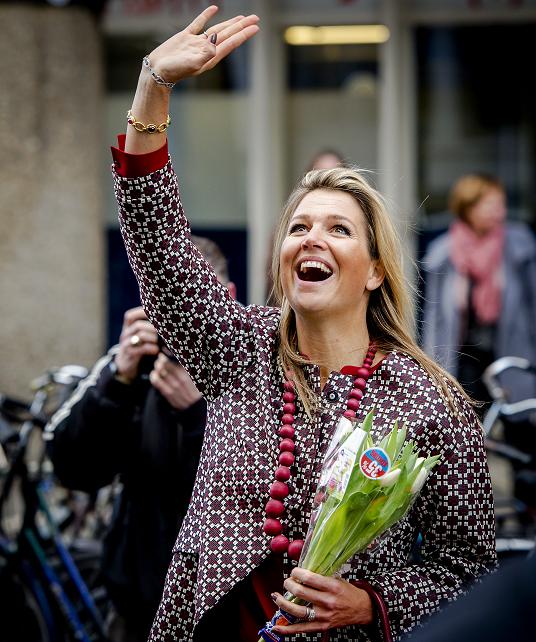
Poor Queen Maxima was a victim of Dutch cheapness!
One thing is certain, the Dutch haven’t been able to shake their international reputation for being ‘careful with the cash’. Belgians and Germans have been making jokes about the Dutch and their relationship with money for decades (ex: the multilingual zinger: “Who invented copper wire? Two Dutchmen fighting for a penny”). Of course the infamous English expression ‘Going Dutch’ which has been a staple in the English lexicon for decades hasn’t helped curtail the Dutchies reputation…
…and apparently it doesn’t stop there: I was recently told a hilarious anecdote from a friend traveling in Greece with her Dutch husband. On learning their nationality the local shop owner shook his head and loudly proclaimed “The Dutch: Kijken, niet kopen”!
Dutch people, however, don’t seem to necessarily see their “money-saving” traits in a negative light, with many a Dutch expression praising the virtues of such behavior:
Ieder dubbeltje omdraaien (to turn over every ten cent piece)
Wie wat bewaart, die heeft wat (he who saves, has something)
I will admit that we were surprised to learn that, paradoxically, the Netherlands is actually a VERY generous country when it comes to individual charity and donations. The percentage of the Dutch GDP spent on development aid is 0.82% above the UN target, and only Luxembourg, Sweden and Norway donate more. Does clever money management result in more to give? Apparently so!
[divider]Going Dutch[/divider]
As we know, Dutch people are great sports at poking fun at themselves. In 2010, McDonald’s tackled the ever-present topic of the Dutch’s “frugality” with this ad (originally in Dutch):
[embedvideo id=”sRgJ-vgW-DA” website=”youtube”]
Ultimately, we’ll let you draw your own conclusions! Have your say in the comments. Just don’t say we didn’t warn you!!!
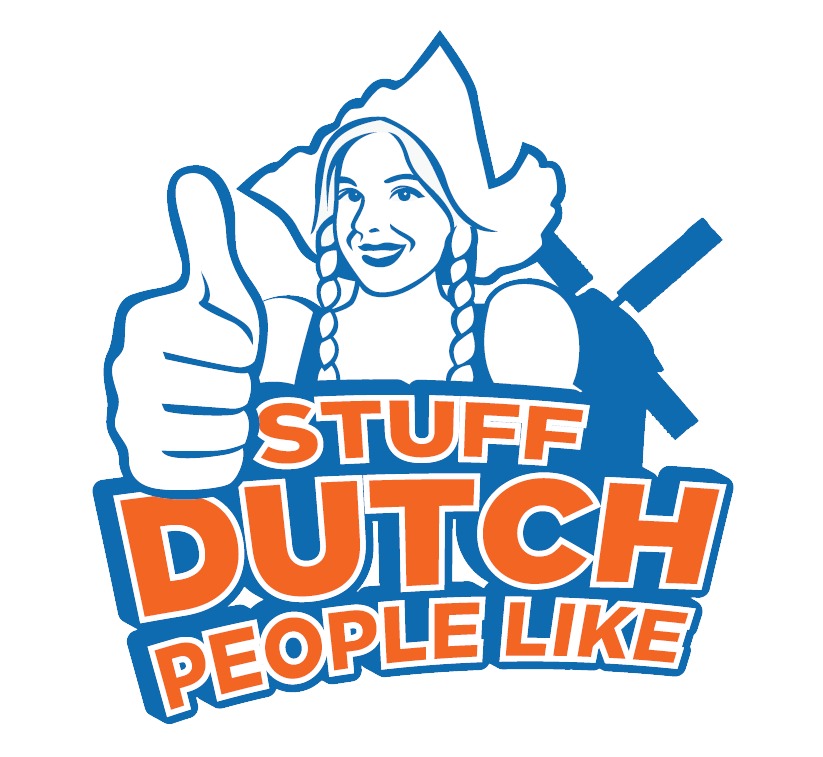

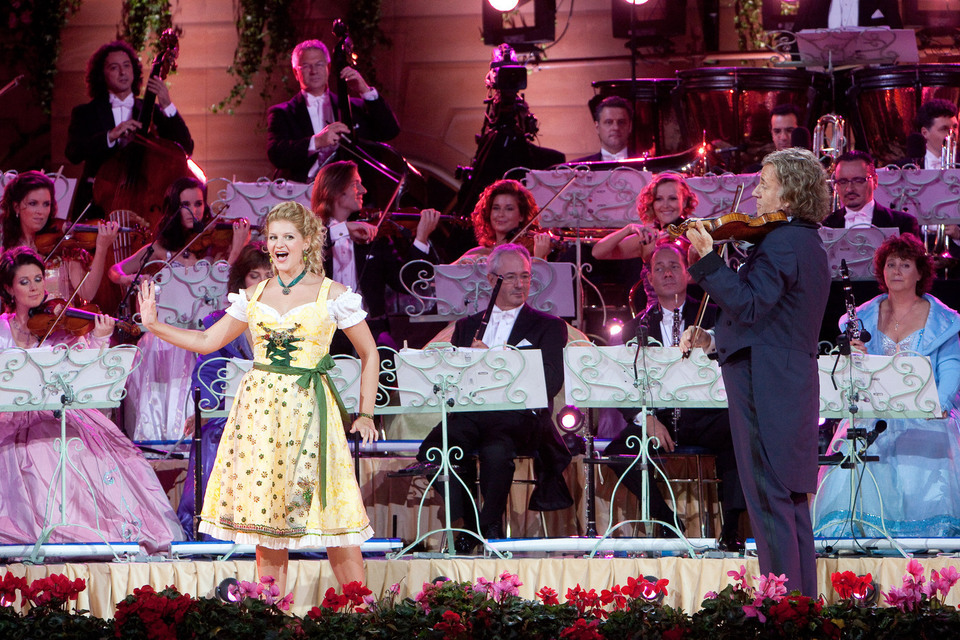
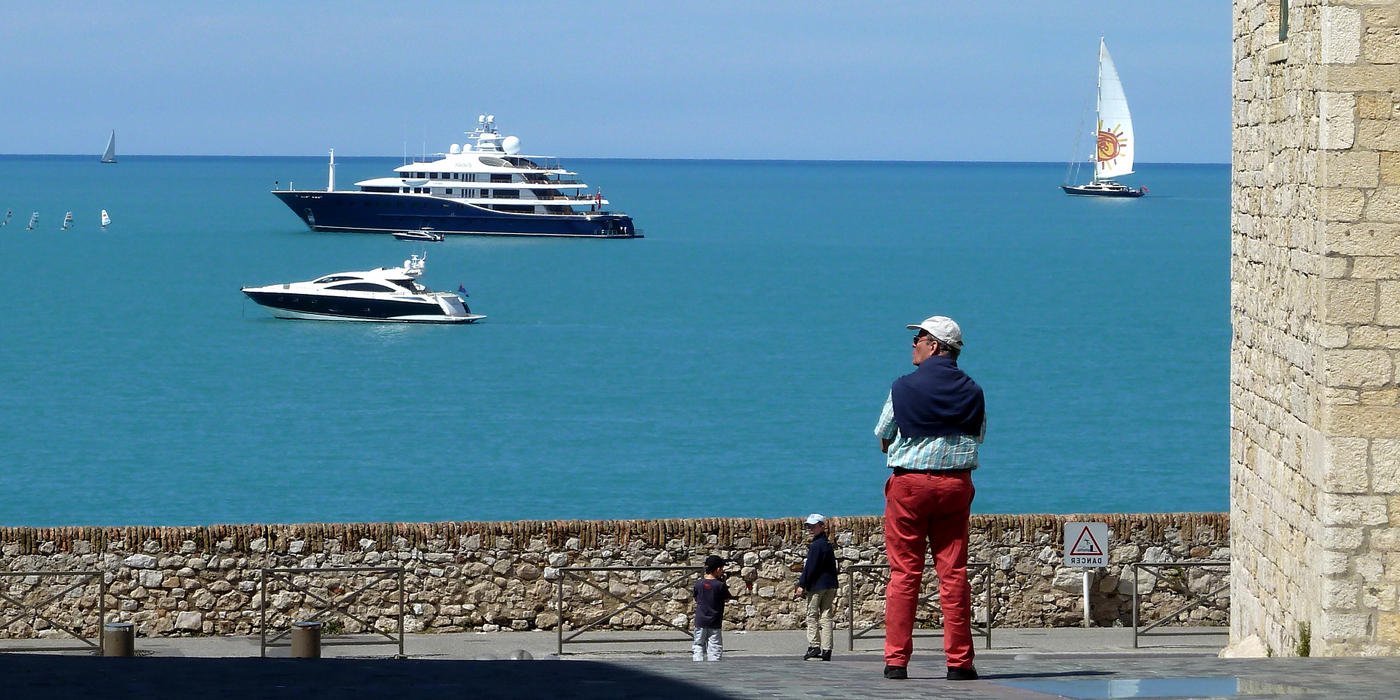




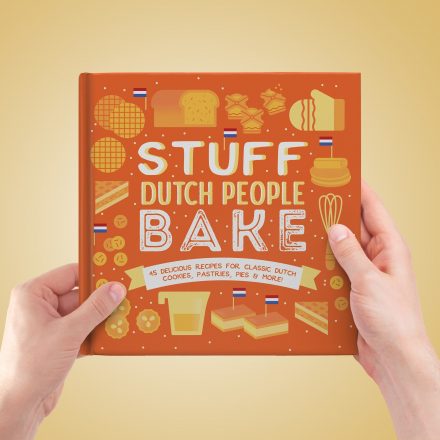

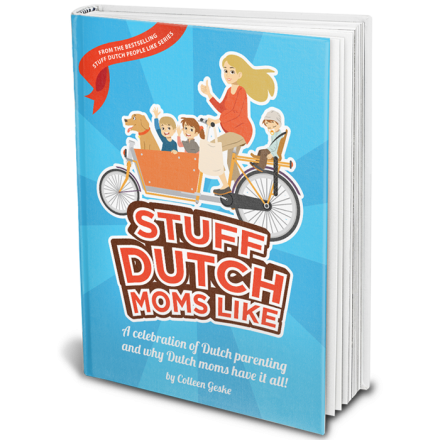
There is not spending money based on greed and based on not having it. Sometimes people do not spend until they find that one thing they like. The concept of saving money for that one thing you appreciate, thus value is a typical Dutch thing.
The obsession with value-for-money spending makes Dutch trade people the best in negotiating deals. The V.O.C. was not only built on big ships and violence. There were some very smart negotiators in the V.O.C. Do you know who was an even more famous negotiator? Johan van Oldenbarnevelt, look him up.
I am Dutch. Regarding my financial decisions value-for-money is vital and I am proud of it.
I love that you can buy a “pottenlikker”. This is a device, specifically designed, for getting the dregs out of sauce bottles, mayonaise jars etc. I love the way that the Dutch psyche has calculated that they are throwing away cents worth of usable sauce every year and thus the investment on a device to save it is worth buying. You can see Potennlikkers for sale in Hema.
There is *cough* another definition for that word
Funny enough, that’s a Scandinavian invention
They’re actually called ‘flessenlikker’.
Actually, both is correct. A flessenlikker is longer and has a slightly smaller head. It was specifically for glass bottles of yogurt and “class” and a pottelikker is for jars with applesauce
Uhm that should have been ” vla ” not ” class”. Android autocorrect
As a Dutch guy, I don’t think that’s about the money. My mother used to have one of those. But more with the idea to get the package empty before throwing it away.. I guess.
Lived there for 8 months and in fact good value, saving and sensible purchasing seems to be normal going along their general abhorrence for wastefulness.
I don’t look at it as being cheap. I just look at it in the sense that I am preventing ‘financial waste’. 🙂
I would say that is a positive thing to have such a good money management . The services are very expensive and the salary is not that great. I also became a little bit more careful with the money I earn (that’s because I was influenced by the dutch people) but I still am an active consumer. I also heard that they are so economical because they save every penny for their vacations. I’m sure that they are keeping an eye on every aanbiedings listed in a shopping brochure or for the things that you can do it for free, like watching a free concert at the Concert Gebouw during lunch time. You really need to be creative to have fun with no money. But on the other hand, there are also dutch people who can enjoy themselves a fine dinner by paying more than 50 euros p.p for a 3 course meal but I am not sure how many can afford such a treat.
My dutch boyfriend will keep looking for the cheapest parking lot in town, yet gladly spend 2000€ on a flight ticket in business class.
Love it because for every penny he didnt have spend-he spent it on something for himself 🙂 – in the end it all works out 🙂
I think it also have to do with the way one was raised and personal values. I live as a Dutch expats, among other Dutch expats and a big thing I notice, is the difference in Generosity between the ages aswell. Where my generation (25-28) spends money for fun and doesn’t care how much as long as it is fun, the older generations seem to fo Dutch on all occasions..
Ofcourse, there are some scrooges here and there, but I think you’ll find those everywhere.. and those are easily culled from the flock
My parents were Dutch . Came to South Africa after the war. Their thriftiness had to do with the war. and we learned from them.
It also really helps that we hardly use creditcards, but are used to debitcards. I think financial problems start with spending money u don’t have…. Own it, than spent it!
Excactly right
I always learned that you should only ever borrow money for a house and for your study. That still seems to be good advice.
I lived in Amsterdam for a year. First place in the city I was introduced to: Hema. Nothing else to say.
You know that American show “Extreme couponing”? Every Dutch person who sees that wishes they could do that over here. I suspect we generally draw a line at “Extreme Cheapskates” though…
I think our Calvinistic way of thinking makes us save money for those things we really want.
I sooo soooooo want coupons in Nederland!!!!! 🙂
I soooo do not! When i watch extreme couponing I am embarrassed..
Actually, coupons are not working in the Netherlands. In Belgium they love it. The Dutch go for collecting seals and points for free stuff or discounts.
There’s a story about former prime minister Willem Drees being frugal when the U.S. representatives Harriman and Hoffman visited him (he was minister then) regarding the Marshall plan after WWII. Apparently they thought the Marshallplan money was well spent with people who were so ‘cheap’! There’s doubt about whether the story is true but it makes a nice anecdote.
Because he served Mariakaakjes at teatime (the story goes).
Your doubts are reasonable. It is a legendary story, but has not so much to do with reality.
It’s a famous story but sadly not based on the truth. Willem Dress was not prime minister yet back in 1947. There is also no records left that indicated that the representatives of the Marshall plan spend a visit to a member of the Dutch government at home.
But there are parts to this story that do backup the fact that the Americans had the impression we did not like to waste money.
First of all is a rumour I heard that the Marshall plan delegation was delayed due to festivals in other countries and their shear happiness with the donations made possible with the Marshall plan. So once the arrived in The Netherlands the festive events were cancelled because the arrived late for several days. You can guess the look on their face when the arrived in The Netherlands.
Second one is the fact that the prime minister back in that time did not live in a fancy penthouse, most of the prime ministers back then used their own humble apartment or asked for a more secluded location in Wassenaar until the “Catshuis” was used for that purpose in 1963.
And the last one… no mater what stories go around, the Dutch did receive the largest sum of money per head compared to any other country in Europe. So there is definitely a grain of truth in this story.
You can’t spend what you dont have, thats our Dutch lesson for .. ehm just a random example, the Greek?
And the Americans! And still other countries too but the greek was a very gold example too!
Well, very misinformed post. As per Eurostat data Dutch households are, at 222,27% of their available income, the second most indebted ones in the EU, just after Danish ones, So, they do spend what they don’t have.
Next time you want to bash another country you’d better do some research Brenda.
Yes, most Dutch people have a giant mortage on their house. So that equals mostly to a giant debt of 30 years. So they for sure spend what they don’t have.
Well, with so many people on this amount of land is a garantueed high prices in real estate. The housing prices went boom during the 90’s en early 00’s and people had to borrow greater and greater percentages of their wage on living. Inflation had nothing to do with this… the housing prices rose and rose, inflation rose and rose, but wages didn’t rise evenly… And as you can imagine… so did the rents
Most of the debts the dutch have are in mortgages and study-finance. In a lot of ways the dutch are forces to turn around every penny!
Here is the source.
http://ec.europa.eu/eurostat/tgm/table.do?tab=table&plugin=1&language=en&pcode=tec00104
I hate to say it Gaizka but I’m confident this is as a direct result of introduction of the Euro. I am Dutch but live outside the euro zone. And I’ve seen the prices of everything triple from the year we had the guilder to the year we had the euro. People struggle a lot more to make ends meet. But still the motto persists ‘if you don’t have the money, don’t buy it’. Try and pay with a credit card in any shop in the Netherlands. You will really struggle. So please explain how it would be possible for these people to live above their means?
I hate to say it, but most of the countries on the list also have the euro now, yet most of them have managed to maintain lower debt levels than the dutch.
And the point still stands, they are spending money they don’t have, so they shouldn’t be lecturing others on financial responsibility.
That list doesn’t tell the whole story. It doesn’t tell you what Debt is coverred by possesions. As stated before most loans are mortages. Most of them are totally covered by possesion. The list isn’t telling that the debt is saving on other things like rent.
So this list isn’t telling us nothing at all.
But apart from the high indebtness (mostly mortgages) the Dutch are also (almost) world champions in pension savings.
Statistics are just figures and should be interpreted correctly.
Debt which is covered by value (your mortgaged house eg.) is not the same debt as on your credit cards or for buying a car which depreciates quickly.
Tax rules in Holland are (still) very favorable for mortgages up to 30 years and that is why the Dutch have high debts in the statistics. You cannot just compare the figures in a table and draw conclusions without interpretation!
You can’t spend what you already have acquired that’s the problem with the Dutch.
We prefer to live as long we are alive than to wait to live after our death like the Dutch
After all I prefer to be known as a spender than as a “dutch”
next time go to northern sea for your sunbath. Greece will not loose much anyway. ..
You can’t still be such a racist when the word APARTHEID is the only dutch word that is known world wide. Wait a minute. Maybe you are proud of your racist ”past”?
Grew up on the motto of – wie de kleine niet eerd, is het grote niet weerd (waard) – far from home they lived the spirit, my parents for you
The Dutch were always well known being tradesmen throughout history. We still are proud of it as most of our National income is generated by exporting Dutch goods. There is indeed a big difference between being economical and being a cheap skate. Indeed during harsh economical times you need to spend your money wisely and due to our background in trade we are good at saving money. I am also Dutch and proud of it! My parents survived WW II and taught their children: if you cannot afford it – don’t buy it. Lending money – costs money … and you can only spend your money once! I personally think that was good advice.
Great to see an honest appraisal from a (half) Dutch person Maria.
I also find the stinginess appalling, almost as much as the emotionless ‘directness’ which is really a complete lack of consideration and empathy for others.
With me, many Dutch will say that you can spend your money once. If you do it in the best way you can buy the best for the best price. Probably was the reason why the VOC became as big as it did in the golden age. And yes, we also donate a lot of money. One of the best examples is the 3FM radio station Serious Request in the week bevoer christmas.
Saying the VOC became big on spending management is saying Leopold II was a lover of African culture: it may be an accurate detail, while it leaves out an enormous part of the story.
The VOC became big on exploiting a lot of people on the other side of the globe.
You have to look at the subject in historical context too. Yes, it was a terrible thing to do, but in that age people didn’t view of Africans as ‘developped human beings’, but more as a inferior subspecies. They didn’t know any better, since it was regarded as the normal way of thinking. With our knowledge today it seems like they were terrible people, but think about what people will say about us in a few hundred years. We keep animals in small cages and look at them for fun. We still exploit people for our luxury (look into the production process of a smartphone and the materials it’s made of). Modern slavery is a huge thing, but we refuse to see it, even though we know it’s happening and we’re all guilty.
But here we are pointing our fingers at the unknowing back then, while we are being ignorant ourselves. Oh the irony..
The erwtensoup recipe leaves a lot to be desired ,you do not use a pork chop but a lArge piece of pork belly to make the stock,i used to be a chief cook in the merchant navy,also you use half split peas and half whole peace.no potatoes but celeriac
The photo of Maxima is deceptive. She was probably given that discounted bouquet by someone in the crowd. It would have been rude for her not to accept it.
It was a young girl. Ten at most
She saw Máxima coming and hushed to the shop. Took some flowers and didn’t see the 35% sticker. Máxima got the flower and saw the girl. She will have understood, her youngest daughter is 8.
Getting back to specific topic here.
I think Queen Max would appreciate it more to receive a small bouquet of flower with 35% discount from someone who might not have much, rather than a huge bouquet of several €100 from a company who can write it off as business expense
Dutch saying: Never look a given horse in the mouth…….
Maxima was right not to do so.
And, she got nice flowers.. Or are flowers only nice when they cost a lot (more)??????
Totally agree Mark. And other nationalities could learn from that. And from an environmental perspective it also makes sense.
If anything, not environmental. Those commercialle grown flowers are choke full of pesticides and an environmental hazard. It’s pretty environmental not to grow or buy them at all. A drawing would have been a lot “greener”.
I live in the Netherlands as an expat and I like how people are so responsable when spending. However I must say that being cheap with yourself when it comes to food is non sense for me. All dutch people love a nice big warm lunch but only if its free. Otherwise “boterham met kaas elke daag”. Don’t se the point on saving money by eating bread and cheese every day until you die.
Eating bread and cheese isn’t done to save money though. If that’s what you think, than youre missing the point. We genuinely really like a cheese sandwich! It’s a part of our culture, and doesn’t have anything to do with saving money:)
We do generally enjoy when we get a free warm lunch though. But that’s mostly because it’s something different once in a while. Most of us don’t like to eat warm lunch every day.
Er gaat niets boven een volkoren boterham met kaas!
Really strange indeed. In the days I had a job which paid the minimum wage, I ate the infamous ‘boterham met pindakaas’. I didn’t really had a choice. But look at the French, or the Italians for example. Meals are far, far more generous! Hard to understand why the Dutch prefer to have a simple, time saving lunch (even when earnings are decent).
Having lived in Holland for more than 40 years, I must say there is something intrinsically wrong with it’s society.
The most expensive restaurants in Europe and the cheapest supermarkets, draw your own conclusion, the famous VOC mentality goes back to smart ransacking of other country’s and leaving a mess (as other European country’s did)
For such an internationally oriented country its strange they tried to make being illegal in this country a criminal offence ? How can it be criminal to want a better life for yourself and family. Dutch people do not like foreigners especially if they are colored. The amount of petty racism is incredible here, but as a tourist you would not encounter it. And I am saying that as a white person, I find that very embarrassing. No the cheapskate mentality comes from a background of fighting for what you want and all other peoples can drop off the cliff, there are a lot of historic pointers and when I say these things in public the first thing Dutch people say is go back to your own country, incredible but human nature methinks, we all pretend to be so civilized but in real life it’s veneer that is cracking,
Not every Dutch person agrees with illegality = criminal. In fact, many people protest this kind of inhumanity. I am sure that a lot of Americans are opposed to death penalty, contrary to daily practice. Anyway, strange how a light hearted subject tends to evoke these kind of ‘off track’ comments!
“Dutch people do not like foreigners especially if they are colored.” Please, speak for yourselves. Unfortunately, it’s the racists who scream the loudest, but most Dutch aren’t racist at all. In fact, I find it pretty racist to call every Dutch person racist. Don’t you think that as a Dutch, white person I feel ashamed of those racist pvv’ers? I am. Every freaking day, but as we call it, it’s vechten tegen de bierkaai. We need to keep fighting though, but the country gets more and more polarized and with all those extreme rightwinged racist with their rudeness, thats not the easiest thing there is. So please, stop the negativity and be a little bit more positive ok? Achter de wolken schijnt de zon.
I am married to a beautiful ,smart (Master degree) ,pleasant…..black lady….
As much as we like and use “Dutch directness”, it is a different thing than an all out verbal attack, and if you word your opinion to other Dutch in the same way, I cannot honestly be surprised at the reaction you get. I, furthermore, don’t think the reaction would be far different in any other country. Having lived here for 40 years you must have found things you like, yet you only mention the negatives, and with quite some venom.
As others have mentioned, you are also generalising, painting us all with the same brush… indeed a trademark of a bigot.
Contrary to the “pvv-ers”, I think you are entitled to your opinion, and have the right to voice it, even if it doesn’t match mine or offends me, but be aware that words can hurt, as I am aware I might have hurt you with the above, and that hurt people lash out.
So because you’re not a PVV’er and because he’s lived here 40 years and “must like something”, and because that dumb proverb says you have to keep in all critique and only utter niceties, he can’t say that there’s a lot of racism in Holland?
That’s a weird train of thought.
Btw: I agree with him (not as a PVV’er even, fashion that.)
That’s funny. Calling all people out for being racists, but here I am, Dutch and not racist. Yes there are racists here. they are conservative, rightwinged, scared people who have seen the country change for the past 50 years. Those people can’t cope with the fact our society is changing. Fear is a logical reaction caused by change. It’s a huge clash of cultures. It happens everywhere though. The US, for example, still has issues with its black and latin American community. All over Europe there are issues with the large amounts of immigrants seeking refuge.
Can you really blame them for being afraid? Even though there is nothing to fear (friction is always a consequence when two cultures collide), eventually the Dutch and Moroccan/Turkish/Polish/Romanian/etc. immigrants will blend and the fear and animosity will fade away. But to this day the fact remains that sometimes one can be in a tram or bus, without anyone speaking Dutch. As someone living in a big city, i’m used to it and don’t have any problems, but some people just do.
I wouldn’t call it racist, but protective. Besides, there is an actual problem with the integration of immigrants, due to the idea that they would return to their home countries after their services were no longe required (didn’t happen). Also, a lot of immigrants came from the countryside, and have yet to adjust to a much faster, more developped (in terms of technology and knowledge) society.
The majority of the Dutch aren’t racist and don’t make a big fuss about immigrants or racism. They aren’t very outspoken (in public), but form the silent majority. The problem lies with the attention the media gives to the extreme right (PVV, Wilders) and the muslim fundamentalists, which could give the impression a majority of the Dutch are racist and want immigrants to go ‘back to their own country’.
The thriftiness of the Dutch is a result from the early 50’s, when we had to rebuild our country after WW2 and decided to do that with saving up our money. that generation tought other generations to be very careful with spending money on things you don’t really need. The VOC mentality has nothing to do with it, but is something people love to refer to.
In your 40 years you have become very sceptical towards society, which is typically Dutch.
I think your conclusions are very narrowminded, and based upon shallow knowledge of our society. Maybe you’ve been reading ‘De Telegraaf’ too much.
Man, you people really need to read and understand the definition of race and racism.
What does not liking or wanting illegal immigrant in their country, especially the ones that cause trouble, and not letting muslims force their fascist islam sharia law on them, have anything to do with racism?
You retarded libs are like sheep, following the mass because you think that is the right thing to do, even if that means selfdistruction of yourself, your own people, your own ways, your culture, and then on top of that you keep throwing words around that you don’t even have a fucking clue on what they really mean. Why? Because you think if you acuse someone else of racism you are the good guy. Tell you what, you are not the good guy, but you are the problem and an idiot.
Just to finish it of, it’s so funny to see people get all hot and bothered when they get called a racist, they have to say it right back. “What, whattt…? I’m not a racist, you are a racist for calling me a racist, racist!”
Pomme I guess you’re right there’s something wrong with the society, because that’s what creates the attitudes of the robotic people.
The root of it could be a lack of empathy or humanity, an innate unwillingness to give to others.
They may try to compensate in impersonal ways such as donating to faceless charities, or giving directions ad nauseum, but still this trait manifests in countless ways – apart from their world-famous stinginess. They block walkways without considering who is behind them, stand and chat in a doorway or corridor and will not move until begged, occupy 3 seats on a train without even looking up at the passengers searching for a seat. If you cross a zebra crossing on a bike, they will attempt to run you down, or even if you cross the road slightly outside the lines. Shop people will blithely inform you “we don’t stock that item” before you find it yourself. That’s if you can even get their attention while they chat to colleagues. Waiters will invariably mutter something in Dutch at you as they sweep past your table when you try to get service. They’ll make you wait in line in a shop just to ask a simple question like “do you sell milk?”, and treat you rudely if you try to ask anyway. Like single processor robots they cannot multi-task.
Rules are far more important to the Dutch than actual people. In general they will take every advantage from others possible, without any thought of repayment.
Even though I asked her nicely, my neighbor refused to stop hammering on her wall at 8PM, keeping my 4 year old awake. I told her I would call the police, and she said she would too! Soon she appeared at my door to tell me I was right, and that she would stop, because the police told her she must stop if neighbors complain. She thought she had the right to continue until 10. She wouldn’t stop for me or my little boy. Only because the police told her she must. This after having her over for dinner with her son!
This just illustrates the typical Dutch attitude of take what you can, give as little as possible, and feel nothing for others. It is a trait that is as invisible to the Dutch as water is to a fish, because they are so thoroughly programmed, like robots, who all ask the same questions to foreigners:
“How long have you been in Holland?”
“And you don’t speak Dutch?”
“What brought you here?”
“You eat warm for lunch?!”
The list goes on. The “grey Dutch” will never surprise you, except with their rudeness and stinginess.
Yes! I totally agree with your opinion, Jason Hartman! I have had very similar experiences and made the same observations. It’s the lack of empathy and natural consideration of others around them that they bring into financial matters that make them notorious internationally for their stinginess. But the real crux of the issue is the lack of consideration – the overly aggressive pursuit of self interest that runs through every encounter. So glad others see it too!
And how does this *rant* relate to above article or the subject at hand?
The other thing the Dutch don’t tolerate is rampant stupidity or ignorance. If you really feel like you do about our society or country, then why not go back to your island?
You’ve probably just proven the, somewhat random point considering the initial post, made by Pomme… What Pomme is referring to, is the misguided sense of ownership that not only the Dutch but most Europeans have. The sense of owning what ever we call the Netherlands, e.i., the land, cultural heritage. I suppose it’s true that deep down we, Europeans, Dutch people, feel that all this is ours and not theirs. I suppose it also has something to do with why people say they feel “American” after they’ve lived there for one year, while it can take up to ten, twenty years for people to say the same about feeling Dutch.
They grew up in that country, as did all their ancestors. They lived the good and the bad times in The Netherlands and they are steeped in its culture. It’s where they feel at home, it is their little corner of the universe. Can you understand that when others come into this little corner and decide it must change to suit them, when they have their own home to go back to should they wish, it is not always welcomed by the initial inhabitants of that country? How can you say it is a misguided sense of ownership? It is an attachment and a sense of belonging that is being taken from them because others don’t like their own home any more.
I can understand that refugees must be taken in and protected, people that no longer have a home to go back to, but this kind of hospitality should not be rewarded by disdain and hatred, and it should definitely not lead to a destruction of their guest country. In that case, the refugees act the way the suitors do in the odyssey.
Agreed. Even the countercomments are proving your point.
Man, “go back to your island”?
Why, that’s not racist at ALL!!
@ Maria
I don’t think you have a the right idea of what racism is. Racism is deeming your own race to be superior over someone else’s. Saying one should go back to one’s island is prove of being terrible at receiving critique, rather than a racist comment. Nowhere did he say he thought his race is superior.
People have a tendency to call everything racist nowadays, while they don’t have a grasp of what racism really means. The word is suffering from devaluation, due to (amongst others) your narrowminded conclusion.
More so, the defensive attitude of some Dutch people, is a result of the fear of losing their cultural heritage, which is caused by the mass immigration over the last 70 years. Especially in big cities, the amount of immigrants have surpassed the amount of ‘autochtonen’. It’s something i personally like, but I can imagine others are quite scared of it.
Thanks for mansplaining that to me, Rutger. Now I know that nothing is racist, except when someone makes it explicitly clear that his or her race is superior to others. Not that such a thing as “race” exists according to scientists (even male ones!).
Thank you also for pinpointing that defensiveness isn’t racist. Here I was thinking that you could easily be defensive *and* racist. It’s just about conservation of culture!
And the VOC wasn’t terrible because it was ages ago so I’ll never mention it again.
I might have overlooked something in the study’s conclusion, but I doesn’t is clearly state that we come somewhere in the middle? Translated the article says: “On average a complete Dutch household is expected to spends 455 euro on the holidays or holiday-related things in the six weeks prior to christmas. With that, only the Italians(438 euro) and the Spaniards(381 euro) are bigger penny pinchers. The Germans spend the most: 680 euro, followed by the Belgians with 583”. Not to say we wouldn’t be best described as reserved spenders and we do get excited by a possibility to economise. I think Dutch bank account even have the ability to actually feel abused when we withdraw a large amount of money at the ATM or indulge ourselves…. At least mine seems to cry out a bit after my monthly costs have been debited.
To come back to the research: we must take in to account that Spain and Italy have been greatly affected by the recession, more than we have. Plus Italy(Spain I don’t know that well) for example celebrates most holidays with a dinner or lunch, made by themselves. And they usually drink their own wine or from an association like an Arci Sociali(Tuscan social groups deriving from the communistic times). So that could explain the difference in costs.
I think that “being Dutch” indeed doesn’t refer to be cheap. We Dutch are/ or at least used to be, wiser than many other cultures around the world if it comes to spending money. Because my parents taught me how to earn and value money, I am now able to use it wisely. I have been traveling, volunteering and working in Latin America for more than 11 years now and at the moment I am living from less than 400 US$ a month, because I am investing in starting my own business.
I have a higher goal that’s worth saving money for and this is something that many people, especially in (Latin) America don’t seem to understand. Their mentality in general is that they live by the day. Which is perfectly fine, but hen also don’t complain, or don’t be jealous with me that that I can travel that much and you not…
I think that many Dutch rather spend their money giving it to the real poor, instead of to someone who tries to ask ‘too much’ for something.
When I guide groups of tourists around Peru and a salesman says to us: ” Ah, Holanda, kijken, kijken, niet kopen”, then he can only know this, because we Dutch taught him this and are not ashemed of being known as carefull spenders. It also tells me that this salesman is either very stupid, or knows that we have humor, because why else would he ‘insult’ potential clients… This way the acknowledgement of “being Dutch” has been added to the possible negotiating table, where the salesman knows that his final price might be a bit lower than with the average North American (South Americans themself are often even getting better prices…), but that he could still earn some money if he plays well…
Obviously the person above who claimed to have lived for 40 years in the Netherlands has completely failed to understand our culture and general way of spending our money on the things that really matter and blames his/ her failing on someone else. It are people like that who give others a bad name and start discrimitation, because of misunderstanding 🙁 If more people would SAVE their clitics and try to understand and respect each others differences, there would also be less discrimination….
It’s tr’ue. If everyone just aped the opinion of others, without any critique, then there would be… wait, what?
That said: great cultural superiority complex you’ve got going vis à vis the South American culture there! I’d love to have you in my village, telling me why I’m not getting ahead in life, while your parents paid for your studies with money indirectly distributed through colonial wealth, robbed from other countries, and flying halfway across the globe where my Dutch money is worth so much more I can be a cheapskate while others share whatever they have, probably with me, too.
Yup, you got it goin on, man.
Supposedly, you got your superiority complex from there, as well.
PS/ I’m Dutch, so go easy on that “others shouldn’t critique” crap there 😉
Dutch culture has never been tolerant towards those that do not conform to the normal Dutch baseline, the so called tolerance never existed. This feeling has increased due to the problems caused by new immigrant groups like moslims, eastern-europeans. Especially moslims who want to force their views on us. Immigrants telling locals what to do is never a smart move…. that’s how you get to make enemies very fast. The view of local Dutch people= you come here you learn the language, work hard and then get to speak about any changes you might want. The one thing we Dutch hate the most is outsiders telling us what to do, especially if its an American who always thinks America knows best…. (America who killed all the locals, and spies on everybody, tortures people and wages wars everywhere). You want to speak to us…. you earn respect first.
Funny how the Dutch themselves had no problem at all telling the Indonesians what to do in their own country.
It’s probably an “only in Holland” rule then, is it?
i’m sure John was talking about recent years and not some 50+ years ago. He’s talking about new immigrant groups ‘forcing their view on’ us and not adjusting to the country. You’re talking about times where it was ‘normal’ to invade other countries and tell the people there what to do (which was wrong ofcourse-but that’s not the point).
Funny article, however not all Dutch are economical, although they know how to find buys cheaper.
Today in the news broadcast there were concerns about the youth with average education. They spend too much, some already have round 5.000 Euro debts. Few weeks ago there were concerns about the 50+ generation, they don’t have enough money aside for when they would get unemployed, the minimum should be 13.000 Euro, but they don’t have this available. You might say a few Dutch need more then the “flessentrekker!”
I would conclude only the elder generation takes care about their savings, as long there not robbed by the elderly home system in our country.
I disagree Jan Willem. There are plenty ‘younger’ people (I am 43) who live by the motto to save as much money as you can and spend your money carefully. Living in the UK that once got me into an interesting situation: on a project management course the trainer asked ththe group of students: ‘At the end of the month, who has money left?’ – 1person put their hand up (me). Then he asked ‘and who has month left at the end of their money?’ Everybody else proudly put their hand up. That was well before the uk financial crisis and something that made me think at the time that was very worrying and something to be ashamed of, not proud.
For sure you have a growing group youth who take care of their finances, but according to Nibud 1 of 5 students live with a debt: http://www.nibud.nl/beroepsmatig/1-op-de-5-mbo-studenten-heeft-een-schuld/
But there is also some hope, the group is smaller then some years ago! Gives this 47 year old man some hope!
One thing regarding the ‘going Dutch’, I moved to New Zealand two years ago, and if you go out with a group everybody buys their own drinks. Not what I’m used to in the Netherlands where you buy a round of drinks.
There is also the expression “iedere dag een draadje is een hemdsmouw in een jaar” to refer to the Dutch frugality.
I am Dutch by birth, have lived in the States and since 2011, I live in Canada.
My Dutch friends and sister (and I of course) don’t not have the habit of going Dutch, on the contrary. I remember that when going out, whether it was for a drink or a dinner of lunch, we used to treat each other, and anyone who took advantage of that by sharing in the treats but never returning the favour, would find him/herself outcasted from the friend’s circle sooner or later. Ironically, it was in the States that I learned about the Dutch treat, because my American friends only paid for themselves! It was also in the States that I learned about the phenomena of cash registers which produce separate bills for every member in a party, something I had never seen in Holland!
Now I live in Canada, and I remember how I was introduced to Canadian frugality by two Englishmen who had been living here for decades. I was looking at a nice sailboat, but they told me that if I wanted a good deal, I’d better go to the States, because “Canadians ask top price when they sell, but only want to pay bottom price when they buy”. Indeed, that has been my experience as well over the years. Mind you, life is VERY expensive here, and most Canadians don’t earn big wages.
My conclusion is that the inhabitants of this North-American continent have been eager to adopt a practice that suited them very well, and then gave it a name that would blame Europeans (Dutch in this case) as to hide their own frugality.
That’s an interesting observation, I didn’t know North-americans don’t buy rounds of drinks. It makes sense to call a certain habit foreign.
I could be your typical Dutchman, I get a high from buying something at the best deal possible. Like sneakers at 70% discount and the cashier takes another five euros off the price, bc it’s the last pair.
I think the reputation is also deserved when it comes to letting other know you are rich. Our calvinistic upbringing learned us to not show off with expensive goodies but save and invest for rainy days. Besides our big mortgages we have high average savings.
It’s a fading virtue, our multicultural youth-like the rest of the world- see hip-hop videoclips as examples for their lifestyle.
“Elke dag een draadje is een hemdsmouw in een jaar” means if slowly acting but with perseverance, you can succeed in the end. This comes from hard times, when poor people made their clothes themselves, even from making the thread by spinning and then knit of weave. And weaving take much wefts done. So one sleeve a year means some years weaving for a piece of cloth big enough to sew a complete shirt.
knit or weave
Having been raised in this country with Dutch blood coursing through every fiber of my being and having great money management skills in my DNA makes me glad that I am a Dutch/American woman. I have taught this skill to my children and now that they are both adults I have seen the pay off from my early education from my very money conscious father and passed it on to them. So now they don’t buy stupid stuff but when they do it’s in the budget. Now if that is being cheap so be it however maybe our govt should take some serious note on how this done so we wouldn’t have the national or even personal debt that we do.
I am 87 now and have lived in the US for more than 50 years. But in discussions with Americans about the traits of Dutch people I always tell them what our HBS english teacher said: “In matters of commerce the fault of the Dutch, is offering too little and asking too much.” Ir. H.Vera, Tulsa OK
Living on the coast in Spain in a touris resort, I see many nationalities. The Scandinavien,English and the Dutch are the most generous tippers and spent easily. Belgiums are the worst. They go dutch all the time and don,t tip. Med. Countries are more on the money too, but that is probably a crisis thing.
Amen!
After years of working in restaurants all over Europe i have learned one thing,and that is that American, Scandinavian and dutch people tip best, and i would always avoid German, Belgian and mediteranean tables.
But the people that can give the highest tips: French. They hardly ever do, but when they receive good and proper ettiquette, they can give up 50% of the bill in tips…
It’s a habit of payment in the native country. Belgians, Germans and mediterranean countries have a habit of giving good basic wages to people in the serving industry. Thus, tipping isn’t an essential part of their income, and something that isn’t done on a regular basis.
I’m originally Dutch, but live in the US now. My boss is very happy with me, because I’m the one who finds good deals on postage, coffee and filing for the office. I’ve always been taught to spend my money wisely and that’s what I do. I don’t go out of my way to get a good deal (no extreme couponing here), but I’m always on the look-out for good deals. I will use Groupon to get discounts and I will use promo codes when I buy online if possible. Why pay the full amount, when you can buy the same with a 20% discount?
Another thing I realize is, that if I want something really bad, I put it on my wishlist, save money for it and in the meantime keep my eyes open for discounts. A lot of American people I know would just go to the nearest store the same day they decide they want something and buy it. Even if they have to put it on their credit card.
I read this joke about Dutch, uhhhhh, thriftiness:
Q: What do Dutch children get for Christmas?
A: Coupons
I started to black out because I was laughing so hard.
Being thrifty and saving money is OK. Sharing tedious anecdotes about penny-pinching tricks is not ok. Giving a gift then telling the recipient how large a discount you got when you purchased it is absolutely not ok.
Generally speaking, Australian (like myself) are well travelled and are globalised citizens. We are very tolerant nation. Furthermore, our country is so far from others that we tend to observe other’s culture in an objective – unbiased view. My views on this subject matter are purely from an outside person/party.
People in various cultures are living beyond their means. With the social media concept of living, people are faking their lifestyles and wealth, it’s scary. The GFC, should have taught us all, a lifetime lesson. As a non Dutch person, my feelings towards savings or spending wisely may be considered cheap, frugal or stingy with your own money (as long as you are not stealing from others) are smart investment choices! Most of the arguments stems from the traits of saving or spending wisely as being stingy and cheap or frugal. Saving or spending wisely shouldn’t be downplay but should be considered as the need to keep or maintain the living standard that our parents had struggled to provide for us.
My Asian parents has raised us with the saying, ‘nothing in life is free, you will pay for it sooner or later!’ This theory applies to either life or financial experiences.
The people that are struggling are the one that spend money on faked living, where they have expensive international designers clothing, buying their trend expensive lunches, eating at fancy restaurants 4 nights a week. Get back to basic even it means being Dutch!
As a Dutch person, I am actually also not sure what the fuss is all about. We aren’t cheap, we are just really well in preventing wasting money. If I can buy something for €0,10, then why wouldn’t I do so, even if it takes me more effort to buy it?
From my experience, Dutch people aren’t so much cheap as they are stingy with what they own. They don’t put out a whole tray of cookies for guests, they open the tin, let you take a cookie and then put the tin away.
I am a Dutch expat in Peru. (Actually I naturalized myself Peruvian), and when we go on holiday for example, we don’t look at how much it costs, but about how comfortable it is. We like to go to good restaurants ( which usually are pricier).
What always strikes me, is when my (Dutch) parents talk about THEIR holidays, and the places they go to, they always have to mention how much they paid for their things, like a $20 hotel, when we go to $100 hotels, or their $3 restaurant, when we just invited them ( not going Dutch) to a $25 restaurant.
My Peruvian family gave them all kind of tips to visit such and such place, but then my parents always do exactly the opposite, and proudly tell me that they place they visited was only a third of the cost, but in my opinion not really enjoying the fullness of what they might have got if they would have gone to a nicer place.
For me, a Peruvian turned Dutch, it is not about how cheap I got something, but on if I actually enjoyed a place without looking at the price.
Are you that whealthy that you can pay any price, or do you live on the creditcard? My holiday-questions are a) is it pretty within my budget and b) is it reachable and doable by public traffic. I don’t cry on the diminishing, If it fits, I’ll have hollidays and else my summer-address is Balconia.
The Duch are very stingy people. They don’t even shower or buy deodorant so they can save more money.
The family who lives next to me have a car but instead of using it they prefer to use their bicycles with an attached wheel barrel so they can carry their children.
And Bikes Everywhere!I Thought We Are In China.Even Thirdworld Have Cars.And Over Priced Goods.I Was In Train Station,And Dutch People Have No Manners,China,India,Myanmar,Italy,Spain,I Like Norway,Japan,Iran,Jordan,Korea.Sweden,Look At How They Talk Demanding Waiters And Rushy.Stingyness Is A Sickness.Have No Logic At All.
There is a simple and easy English saying that pretty much describes the Dutch stance on money:
“we are rather penny wise than pound foolish”; Nothing more to say about this really … (well and maybe that we in general still have an expensive taste, so if you can save a bit here and there, you end up with more money to spend on things you need to safe up for).
And some more things, mainly about ‘going dutch’, while i am not to sure where it comes from, it seems to deal with a very simple concept of ‘equal share, equal pay’, or in a more general sense ‘equality’. While we had a ‘golden century’, that ‘golden’ surely didn’t benefit everybody equally. Life in the Netherlands has been generally hard for most common folks (just look at our foods, or the painting ‘The patato eaters’).
It’s not that we were frugal persee, it’s more than likely that most of us were actually poor; and the concept of ‘women working’ (while long thought to be some feminist ‘right’) was actually tough reality for most women through most of the ages. So with money tight for both sexes, the concept of ‘eating a fancy dinner out’ was a luxery that likely only could be paid if both put their money together. Add to that the feminem movement of the 60s, which basically ‘reclaimed’ what had likely been the norm for many women before WO2 (aka. working and in large part independence and/or a say in pretty much everything (in part representing their men, in case of fishing communities f/e) … this then remained the standard, one most Dutch women (i think at least) also ascribe to, also in part to not spark some weird expectations of having to ‘return the favor with natural payment’ …
And, some part may also have to do with how wages were paid, at the end of the month in cash. Meaning, you may be wow’ed by a male after he had his pay, but that was no indication of how much he would have left for the rest of the month. So, if you were to pick your male wisely, you would reserve some healthy distance.
While non of these may have been the sole reason behind ‘going dutch’, it might surely be one or some or even all of the reasons behind it.
Having been connected to Dutch people since 1992 and married to one, I feel that the idea of being financially correct is not true in ALL instances, just as in USA traditions and cultures do not appeal to everyone. My husband was in debt when I met him and he paid it off before I would marry him. He spends money narcisstically, for what he wants and needs. No Dutch thriftiness, just buying without comparing prices. We never get gifts from family members, but we do send them Xmas money, etc. from USA. We never ate at their homes, but they come to visit us once a year or so, saving motel bills by living with us. We love having them, and don’t question their spending or not spending; it is all in the perspective. I see them a bit more frugal, such as going on trips with cheese sandwiches and if a long trip, potatoes, etc in the car. But that is what was probably passed down from one family to another. My husband and I never did that when we were in Holland, so who knows what the real story on any of this is. Depends on the family, the person, the influences, and the money available. Frugal or not, I love them dearly and accept them just as they accept me. Peace prevails.
Yes, the Dutch are stingy. They even prefer to spend money for a better world than for their own children. Being Dutch, I left the idea of being stingy. Generous lunches, decent hotels. Why work for a certain wage and live as if you earn only half the money to spend?
I must agree that though I have dearly loved living here in the Netherlands, usually my experience is that it is stinginess (to the point of rudeness), and not always economic sensibility.
For example, in no other European country would someone come over for dinner and not bring anything with them, not a bottle of wine, or a cake, etc.-, then continue to mildly critique the food.
And in my view, in an ever interconnected Europe- it does the Dutch no favours by being constantly perceived as the rude, stingy ones by other cultures. At some point, they need to acknowledge that perhaps the majority view on politeness will and should win out.